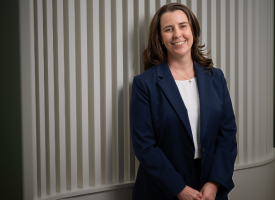Conscientious Objection - 2019
- Preamble
1.1 Doctors (medical practitioners) are entitled to have their own personal beliefs and values as are all members of the community.
1.2 A conscientious objection occurs when a doctor, as a result of a conflict with his or her own personal beliefs or values, refuses to provide, or participate in, a legal, legitimate treatment or procedure which would be deemed medically appropriate in the circumstances under professional standards.
1.3 A conscientious objection is based on sincerely-held beliefs and moral concerns, not self-interest or discrimination.
1.4 It is acceptable for a doctor to refuse to provide or to participate in certain medical treatments or procedures based on a conscientious objection.
1.5 A doctor’s refusal to provide, or participate in, a treatment or procedure based on a conscientious objection directly affects patients. Doctors have an ethical obligation to minimise disruption to patient care and must never use a conscientious objection to intentionally impede patients’ access to care.
1.6 Doctors should be aware of relevant legislation regarding their rights and obligations if refusing to provide or participate in treatments or procedures to which they conscientiously object. If unsure, doctors should consult with their medical defence organisation and/or State or Territory AMA office for appropriate legal advice.
1.7 Doctors with conscientious objections should not be treated unfairly or discriminated against.
1.8 A refusal by a doctor to provide, or participate in, a treatment or procedure for legitimate medical or legal reasons, does not constitute a conscientious objection. For example, where a patient requests a treatment or procedure that is of no medical benefit, outside the doctor’s skills or scope of practice, illegal or where the doctor believes the patient has impaired decision-making capacity.
- Patient care
2.1 A doctor should always provide medically appropriate treatment in an emergency situation, even if that treatment conflicts with their personal beliefs and values.
2.2 A doctor who invokes a conscientious objection to providing, or participating, in specific treatments or procedures should make every effort in a timely manner to minimise the disruption in the delivery of health care and ensuing burden on colleagues and other health care professionals.
2.3 A doctor with a conscientious objection, should:
- inform the patient of their objection, preferably in advance or as soon as practicable;
- inform the patient that they have the right to see another doctor and ensure the patient has sufficient information to enable them to exercise that right;
- take whatever steps are necessary to ensure the patient’s access to care is not impeded;
- continue to treat the patient with dignity and respect, even if the doctor objects to the treatment or procedure the patient is seeking;
- continue to provide other care to the patient, if they wish;
- refrain from expressing their own personal beliefs to the patient in a way that may cause them distress;
- inform their employer, or prospective employer, of their conscientious objection and discuss with their employer how they can practice in accordance with their beliefs without compromising patient care or placing a burden on their colleagues.
- Institutional conscientious objection
3.1. Some health care facilities may not provide certain services due to institutional conscientious objection (for example, some institutions with religious affiliations will not provide termination of pregnancy, sterilisation or IVF services). In such cases, an institution should inform the public of their conscientious objection and what services they will not provide so that potential patients seeking those services can obtain care elsewhere (for example, this information could be highlighted on the institution’s website, patient brochures and on posters clearly visible at the front of the facility).
3.2 At times, a patient admitted to an institution may request a treatment or procedure that the institution does not provide due to conscientious objection. For example, a hospice patient may request access to a voluntary assisted dying service (in a jurisdiction where this is legal) but the facility does not provide such a service due to conscientious objection. In these cases, doctors should be allowed to refer patients seeking such a service to another doctor outside the facility.



